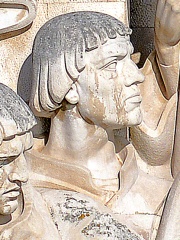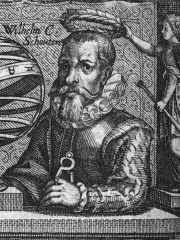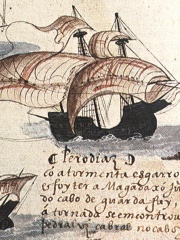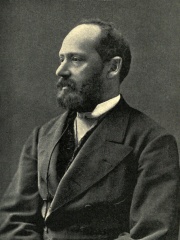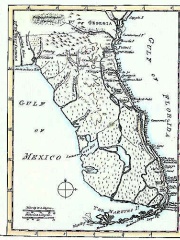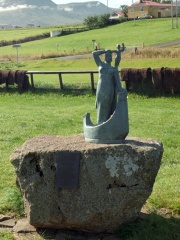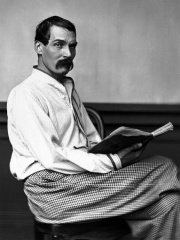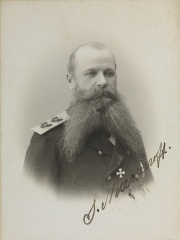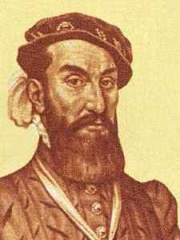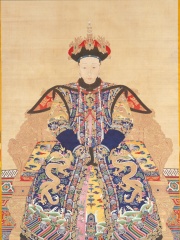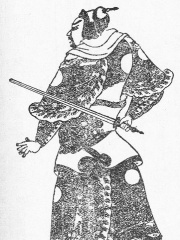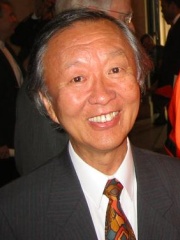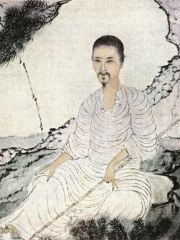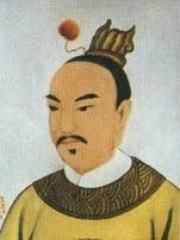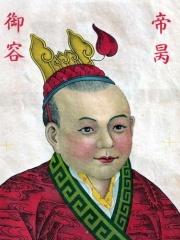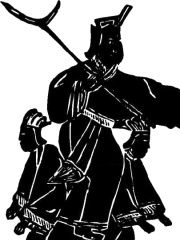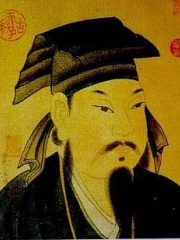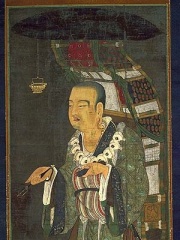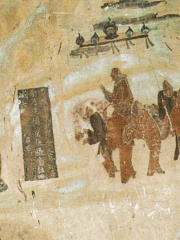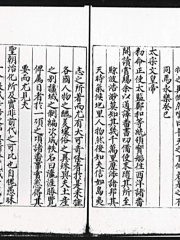Explorer
Xu Fu
255 BC - Today

 Xu Fu
Xu Fu
Xu Fu (Hsu Fu; Chinese: 徐福 or 徐巿; pinyin: Xú Fú; Wade–Giles: Hsu2 Fu2; Japanese: 徐福 Jofuku or 徐巿 Jofutsu; Korean: 서복 Seo Bok or 서불 Seo Bul) was a Chinese alchemist and explorer. He was born in 255 BC in Qi, an ancient Chinese state, and disappeared at sea in 210 BC. He served as a court sorcerer in Qin dynasty China. Later, he was sent by Qin Shi Huang to the eastern seas twice to look for the elixir of life. His two journeys occurred between 219 BC and 210 BC. It was believed that the fleet included 60 barques with soldiers, ship crewmen, and 3,000 boys and 3,000 girls, and craftsmen of different fields. Read more on Wikipedia
His biography is available in 23 different languages on Wikipedia. Xu Fu is the 79th most popular explorer (down from 69th in 2024), the 216th most popular biography from China (down from 209th in 2019) and the 4th most popular Chinese Explorer.
Memorability Metrics
Page views of Xu Fu by language
Among Explorers
Among explorers, Xu Fu ranks 79 out of 498. Before him are Pêro da Covilhã, Willem Schouten, John Smith, Diogo Dias, Ármin Vámbéry, and Juan Díaz de Solís. After him are Gudrid Thorbjarnardóttir, Richard Francis Burton, Stepan Makarov, Álvaro de Mendaña de Neira, Vicente Yáñez Pinzón, and Álvar Núñez Cabeza de Vaca.
Most Popular Explorers in Wikipedia
Go to all RankingsPêro da Covilhã
1450 - 1530
HPI: 69.90
Rank: 73
Willem Schouten
1567 - 1625
HPI: 69.67
Rank: 74
John Smith
1580 - 1631
HPI: 69.66
Rank: 75
Diogo Dias
1450 - 1500
HPI: 69.51
Rank: 76
Ármin Vámbéry
1832 - 1913
HPI: 69.47
Rank: 77
Juan Díaz de Solís
1470 - 1516
HPI: 69.38
Rank: 78
Xu Fu
255 BC - Present
HPI: 69.28
Rank: 79
Gudrid Thorbjarnardóttir
1000 - 1100
HPI: 69.00
Rank: 80
Richard Francis Burton
1821 - 1890
HPI: 69.00
Rank: 81
Stepan Makarov
1848 - 1904
HPI: 68.96
Rank: 82
Álvaro de Mendaña de Neira
1542 - 1595
HPI: 68.93
Rank: 83
Vicente Yáñez Pinzón
1460 - 1514
HPI: 68.82
Rank: 84
Álvar Núñez Cabeza de Vaca
1488 - 1559
HPI: 68.79
Rank: 85
Contemporaries
Among people born in 255 BC, Xu Fu ranks 1. After him is Phylarchus.
Others Born in 255 BC
Go to all RankingsIn China
Among people born in China, Xu Fu ranks 216 out of 1,610. Before him are Empress Xiaoyichun (1727), Jiang Wei (202), Charles K. Kao (1933), Donnie Yen (1963), Shitao (1642), and Meng Tian (-250). After him are Emperor Ling of Han (156), Zhao Bing (1271), Jie of Xia (-1728), Pang Tong (179), Wang Xizhi (303), and Jin Yong (1924).
Others born in China
Go to all RankingsEmpress Xiaoyichun
POLITICIAN
1727 - 1775
HPI: 69.49
Rank: 210
Jiang Wei
MILITARY PERSONNEL
202 - 264
HPI: 69.49
Rank: 211
Charles K. Kao
INVENTOR
1933 - 2018
HPI: 69.49
Rank: 212
Donnie Yen
ACTOR
1963 - Present
HPI: 69.38
Rank: 213
Shitao
PAINTER
1642 - 1707
HPI: 69.32
Rank: 214
Meng Tian
MILITARY PERSONNEL
250 BC - 210 BC
HPI: 69.29
Rank: 215
Xu Fu
EXPLORER
255 BC - Present
HPI: 69.28
Rank: 216
Emperor Ling of Han
POLITICIAN
156 - 189
HPI: 69.28
Rank: 217
Zhao Bing
POLITICIAN
1271 - 1279
HPI: 69.27
Rank: 218
Jie of Xia
POLITICIAN
1728 BC - 1675 BC
HPI: 69.26
Rank: 219
Pang Tong
POLITICIAN
179 - 214
HPI: 69.25
Rank: 220
Wang Xizhi
POLITICIAN
303 - 361
HPI: 69.19
Rank: 221
Jin Yong
WRITER
1924 - 2018
HPI: 69.19
Rank: 222
Among Explorers In China
Among explorers born in China, Xu Fu ranks 4. Before him are Zheng He (1387), Xuanzang (602), and Zhang Qian (-200). After him are Gan Ying (100), and Ma Huan (1380).
